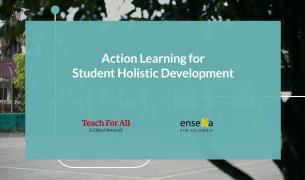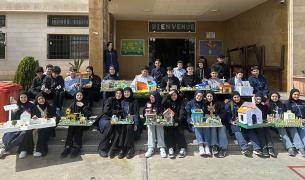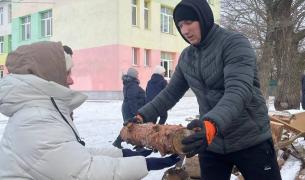Women educators transforming STEM into a force for good
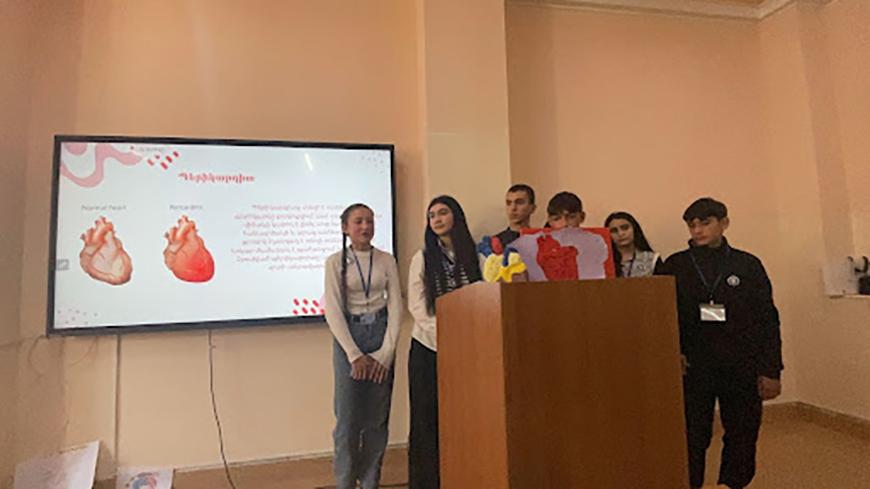
Across the world, science, technology, engineering, and mathematics (STEM) play an increasingly central role in driving development and economic growth, and addressing some of the most urgent global crises—from climate change to global health—making it crucial for achieving a sustainable, equitable, and resilient future for all. As the world grapples with complex challenges, STEM education becomes even more essential in equipping rising generations with the critical skills and innovative thinking needed to navigate these issues.
Despite this, girls and women around the world continue to miss out on opportunities to engage in STEM across various phases of their lives. In childhood, stereotypes about what girls and boys are good at contribute to girls becoming disengaged in STEM from a young age. This reality is further compounded by other socialization factors such as media representation and girls’ self-perceptions of capability. Unsurprisingly, this has translated into fewer female students choosing and completing STEM majors in university. As of 2024, only 35% of STEM graduates globally are women. This underrepresentation of women in STEM fields continues, with significant implications for women’s earning potential, as well as the development of inclusive and comprehensive solutions to shared challenges that impacting us all.
Enabling girls' and women’s engagement in STEM education should be a collective responsibility for the betterment of our shared future. As we celebrate the International Day of Women and Girls in Science, we reflect on the incredible impact women educators across the Teach For All network are having on reshaping STEM education into a powerful force for good. Through holistic, collaborative, and contextualized approaches, they are making STEM more accessible and relevant by bridging classroom learning with real-world applications and the unique needs of their students and communities. In doing so, they bring STEM learning to life and equip their students with the critical skills and adaptive mindsets needed to navigate an increasingly complex and rapidly evolving world. Their work demonstrates how STEM has the power to ignite transformative change and build the foundation for a more equitable and prosperous future for all when centering purpose and stakeholder collaboration.
Dismantling stereotypes and expanding horizons for immigrant girls in Austria
Theresa Valenta, a Teach For Austria alumna, encountered a profound challenge during her first year of teaching at an Austrian middle school: many girls from immigrant communities in her class lacked aspirations for their future, often resigning themselves to traditional social roles. In contrast, their male peers spoke enthusiastically about their dreams and ambitions. Determined to change this narrative, Theresa launched Die BauBox, a project designed to inspire young women through practical, hands-on experiences that break down societal stereotypes and broaden their horizons.
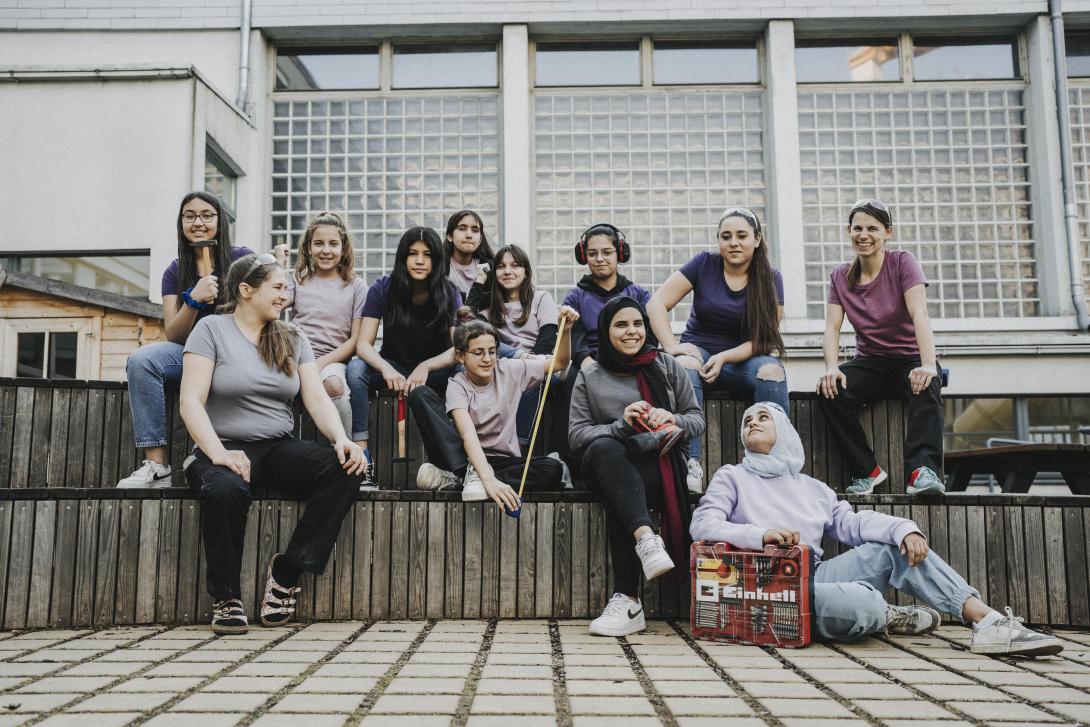
Die BauBox introduces girls to STEM fields through hands-on projects like building community benches and planter boxes. These activities equip participants with technical skills and instill a sense of pride and belonging as they contribute to their local communities. By collaborating with female mentors and STEM leaders, Theresa has helped her students envision a future filled with greater possibilities. Today, Die BauBox operates in three schools and features a summer program, empowering more girls to lead confidently and drive innovation within their communities.
Fostering interdependence in Armenian classrooms
Biology had lost its appeal for many students in Teach For Armenia fellow Nazeli Alaverdyan’s school due to years of online classes and teacher shortages. Given Nazeli’s background in bioengineering and bioinformatics, she knew that the curriculum had the potential to be deeply engaging and inspiring if the right approaches were used and made it a priority to experiment alongside her students to find new ways to present the material.
Nazeli’s approach to her biology lessons provides students the opportunity to acquire important STEM skills like teamwork and openness to discovery. By incorporating collaborative games between mixed-gender teams, Nazeli underscored the interdependence between genders and ensured that both girls and boys’ voices were heard. While students initially resisted teamwork across mixed-gender groups, they gradually began to recognize each other’s knowledge and capabilities. This collaborative approach in the classroom supports students in being comfortable with working across lines of difference to solve a shared challenge, similar to best workplace practices. She has also nurtured a strong classroom culture of providing and receiving feedback, which has enabled each student to recognize and celebrate their progress and growing understanding of biology. These strategies have encouraged many of her grade 11 students to begin exploring STEM fields, from medicine to cellular genetics.
Connecting education to career readiness in Nigeria
In Nigeria, Teach For Nigeria alumna Shulammite Ajayi, who was recently was recognized as a winner of Wema Bank’s national #MyTeacherMyHero challenge, is transforming education through the Vocational Skills and Empowerment Foundation. Recognizing that her secondary school students needed more than theoretical knowledge, Shulammite designed a program that equips them with practical skills while fostering collaboration and problem-solving. From organizing science exhibitions to creating innovative solutions like the STEAMUp bottle—a battery-powered water warmer—her initiatives bridge the gap between classroom learning and career readiness.
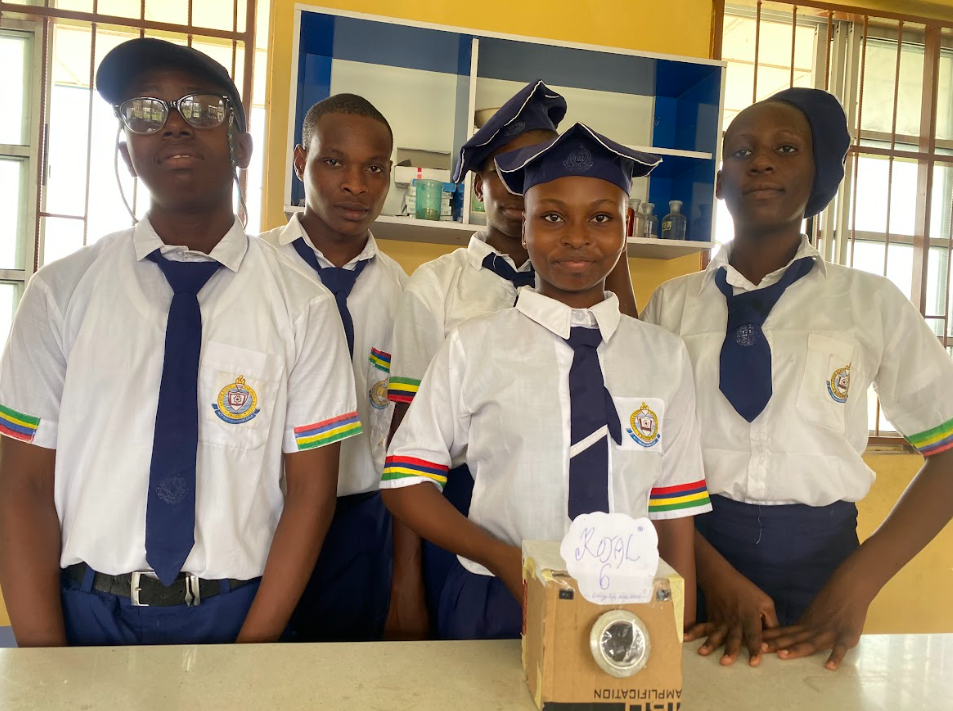
The STEAMUp bottle, developed by her students using discarded materials, addresses practical needs in their school community while showcasing the transformative power of STEAM education. Spearheaded by young female students, the project challenged traditional gender norms. Shulammite’s work has empowered her students to see themselves as changemakers and leaders, capable of addressing real-world challenges with creativity and confidence.
Inspiring leadership through community problem-solving in Vietnam
In Vietnam, Phan Thi Kim Khoa, a first-year STEM teacher with Teach For Vietnam, is using innovative teaching methods to connect STEM learning with local community challenges. In her "I and STEM" project, her 7th-grade students designed water-saving irrigation systems for indoor plants, combining technical knowledge with community engagement on water conservation.
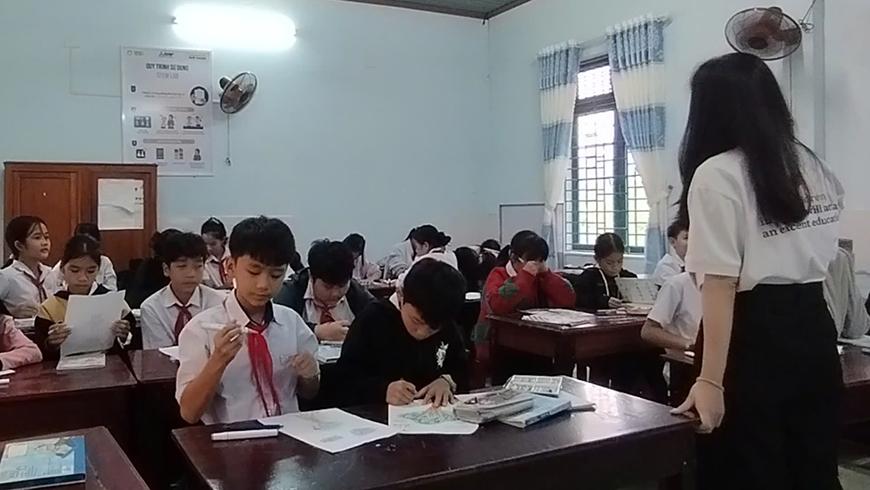
Using the Design for Change framework, Khoa guided her students through brainstorming, prototyping, and presenting their solutions. This experiential approach supports her students in building their technical and teamwork skills and also encourages them to take ownership of real-world problems. Khoa’s project demonstrates how STEM education can inspire leadership and foster a deep sense of responsibility toward community and environmental challenges.
Expanding the impact
Theresa, Nazeli, Shulammite, and Khoa’s stories, while inspiring, represent just a fraction of the countless women STEM educators across the Teach For All network and beyond who are actively transforming the field. Their work fosters a more inclusive, innovative, and human-centered approach, making STEM education more relevant, impactful, and accessible and their stories, and those of countless others worldwide, underscore the crucial need to bridge the gender gap in STEM. As we face increasingly complex global challenges, actively supporting more women in STEM education isn't simply a matter of equity; it's an investment in a brighter, more sustainable, and more just future for everyone.
